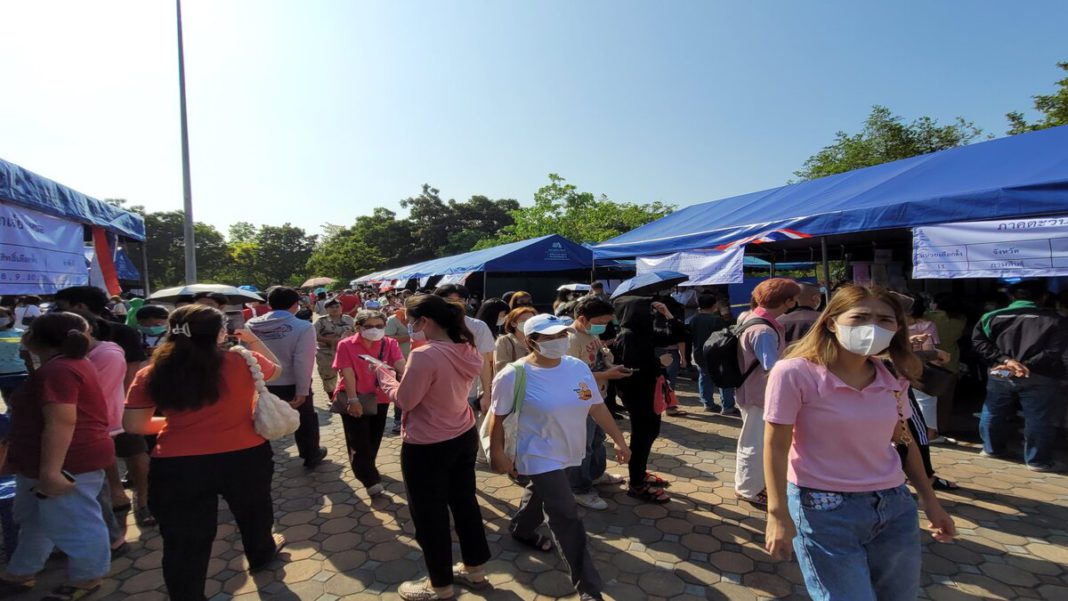THAILAND: On Sunday, many Thais lined up in long queues to cast early ballots in parliamentary elections slated for May 14.
Out of 52 million eligible voters in Thailand who are 18 or older, more than 2 million have registered for early voting, according to the country’s election authority.
Gosol Pungtaku, 51, one of the 800,000 Bangkok citizens who registered for the one-day early voting in the city, stated, “I wish to see change and improvement in management.”
Another voter, Siriporn Namphet, 34, said that she voted for change. “It’s like having seen what the previous government has done and now hoping for a new administration to take over and govern more effectively,” said Siriporn Namphet, a 34-year-old.
The vote happens as Thailand’s power battle heats up. On May 14, a pro-democracy coalition of opposition parties under the leadership of Pheu Thai and Move Forward will compete against Prime Minister Prayuth Chan-Ocha’s pro-military alliance for re-election.
Election laws favour the incumbent, despite pre-election polls showing opposition parties to enjoy a considerable advantage.
The election may upend the status quo after more than eight years of a conservative, pro-military government headed by former army chief Prayuth Chan-ocha.
Prayuth, 69, who first took control in a coup in 2014 and continued to serve as prime minister following an election in 2019 that critics claimed was rigged in his favour (a claim the government rejected), is significantly behind opposition parties in current polls.
The populist opposition Pheu Thai Party, which had won five previous general elections before Prayuth overthrew it in a coup, is currently dominating most polls, followed by the liberal Move Forward Party.
Sunday’s election is for the 500 seats in Thailand’s House of Representatives. According to the government’s preliminary schedule, the final outcome will be known on election night, although official results will likely be disclosed in early July.
Midway through July, the new parliament is anticipated to convene for the first time, with the prime minister to be chosen later in the month. By August, a new administration is anticipated in Thailand.
In late March, when Prayuth dissolved parliament to make room for the election and the election date was decided, Thailand’s SET index increased for the majority of the month.
Also Read: Paraguay’s Conservatives Score a Big Election Victory, Easing Taiwan Concerns



